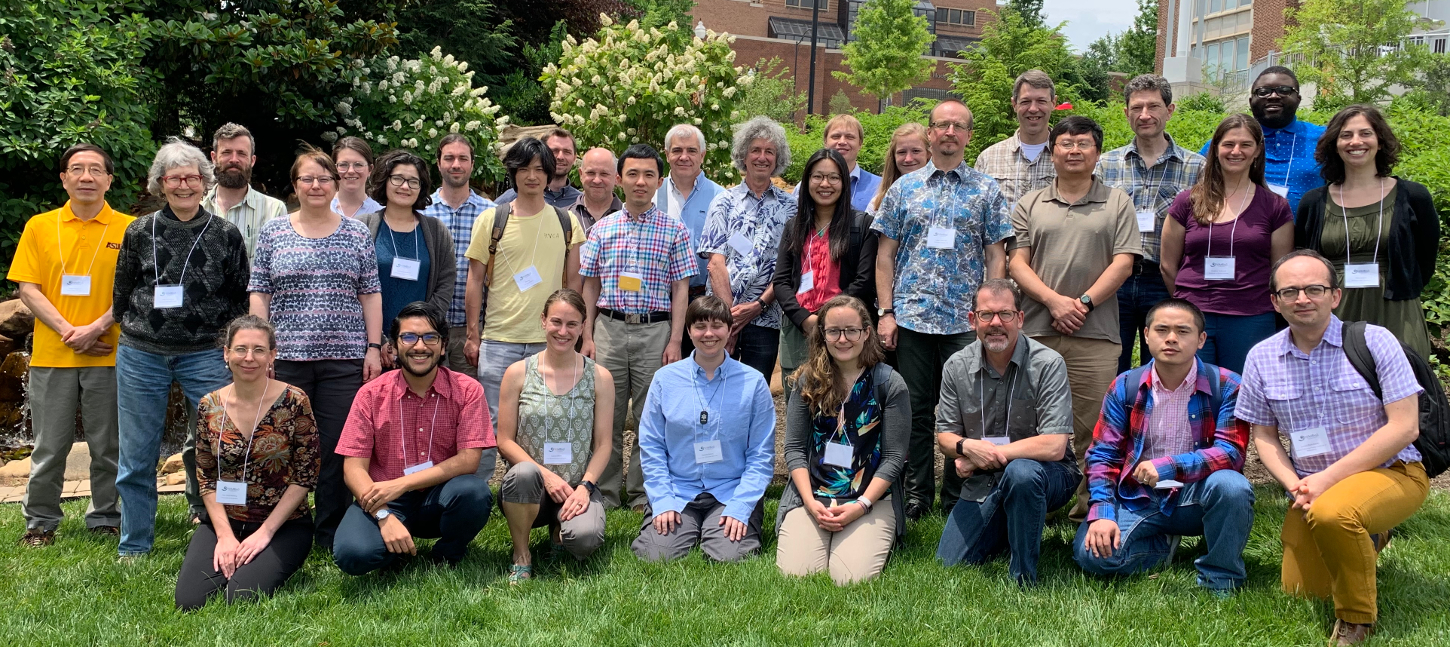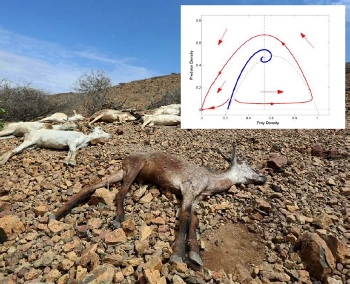| Description | Participants | Agenda | Products |
|---|
NIMBioS Investigative Workshop
Transients in Biological Systems

Topic: Transients in Biological Systems: Implications and Detection
Meeting dates: May 29-31, 2019
Location: NIMBioS at the University of Tennessee, Knoxville
Organizers:
Alan Hastings, Environmental Science and Policy, Univ. of California, Davis
Carl Boettiger, Environmental Science, Policy, and Management, Univ. of California, Berkeley
Kim Cuddington, Biology, Univ. of Waterloo, Canada
Andrew Morozov, Mathematics, Univ. of Leicester, UK
Sergei Petrovskii, Mathematics, Univ. of Leicester, UK
Objectives: Transients, or non-asymptotic dynamics, cover a wide range of possibilities, from biology to ecology and beyond. A full understanding of transients and their implications for biology requires mathematical and statistical developments as well as attention to biological detail. Transient dynamics have also played a central role in both empirical observations and in models in neuroscience. Yet interaction between ecologists and neuroscientists on this topic has been limited. Although epidemiology could be considered part of population biology, there is also less cross-talk between epidemiology and other areas of population biology than desirable. Transients clearly play a role in disease dynamics. Areas such as immune response require attention to transients as well.
Goals for the workshop:
- To spur further research into transients, both from a mathematical standpoint and as a way to understand and analyze biological systems
- To develop appropriate statistical questions related to the analysis of biological systems using ideas from transient dynamics
- To prepare one or more synthetic documents on the role of transients across biological systems
Ideas for this workshop benefited from discussions at meetings of the NIMBioS Working Group on Long Transients and Ecological Forecasting (Long living transients as a bugbear of ecological forecasting: Concepts, models and data).
Workshop Format
Day 1. Initial presentations on transients in different biological areas and presentations on mathematical and statistical aspects, followed by smaller groups to 1) identify commonalities and differences between different biological areas, 2) identify current mathematical and statistical tools available, and 3) identify gaps in statistical and mathematical tools.
Day 2. Preliminary drafting of a synthetic document and development of plans for future research and collaborations.
Day 3. Finalize plans for manuscripts and future activities.
![]() Live Stream.
Presentations on Day 1 of the Workshop were streamed live.
A link to a playlist of online videos will be posted here when available.
Live Stream.
Presentations on Day 1 of the Workshop were streamed live.
A link to a playlist of online videos will be posted here when available.
 Summary Report. TBA
Summary Report. TBA
Publications
- Ahn S, Rubchinsky LL. 2020. Temporal patterns of dispersal-induced synchronization in population dynamics. Journal of Theoretical Biology 490:110159. [Link]
NIMBioS Investigative Workshops focus on broad topics or a set of related topics, summarizing/synthesizing the state of the art and identifying future directions. Workshops have up to 35 participants. Organizers and key invited researchers make up half the participants; the remaining participants are filled through open application from the scientific community. Open applicants selected to attend are notified by NIMBioS within two weeks of the application deadline. Investigative Workshops have the potential for leading to one or more future Working Groups. Individuals with a strong interest in the topic, including post-docs and graduate students, are encouraged to apply. If needed, NIMBioS can provide support (travel, meals, lodging) for Workshop attendees, whether from a non-profit or for-profit organization.
A goal of NIMBioS is to enhance the cadre of researchers capable of interdisciplinary efforts across mathematics and biology. As part of this goal, NIMBioS is committed to promoting diversity in all its activities. Diversity is considered in all its aspects, social and scientific, including gender, ethnicity, scientific field, career stage, geography and type of home institution. Questions regarding diversity issues should be directed to diversity@nimbios.org. You can read more about our Diversity Plan on our NIMBioS Policies web page. The NIMBioS building is fully handicapped accessible.
NIMBioS
1122 Volunteer Blvd., Suite 106
University of Tennessee
Knoxville,
TN 37996-3410
PH: (865) 974-9334
FAX: (865) 974-9461
Contact NIMBioS


